The booming chants of “Peace! Not War!” echoing around City Square defined the 2003 Scottish Labour Party Conference in Dundee.
Overshadowed by a backdrop of looming war in Iraq, the conference was characterised by chaos from the start.
After days of will-he-won’t-he speculation, Prime Minister Tony Blair pulled out of his keynote address at the eleventh hour, when diplomatic efforts to avert war in Iraq failed.
While bombs began falling in the Gulf, a bomb scare brought Dundee city centre to a standstill.
But two decades on, the powerful words and actions of Dundee’s citizens taking a stand against war are more memorable than any speech given by politicians in the Caird Hall.
Countdown to conference – and war
Hundreds of Labour delegates who arrived in Dundee to debate policies on education, health and the economy, were eclipsed by hundreds more Dundonians preparing to protest war.
The days running up to the conference were plagued by uncertainty, with First Minister Jack McConnell trying to quell speculation over Tony Blair’s visit to the event.
The countdown to the conference was running in parallel with the countdown to war, and the largest security operation ever staged in Dundee was well under way.
Although Dundee had hosted high-profile people and events before, never had it been in the curious position of anticipating that the country might be engaged in a war opposed by swathes of the population.
Labour leader Tony Blair was already a target for protesters.
A rally ‘against the warmonger’ in City Square was organised to coincide with his speech on Friday March 20.
But security chiefs also had to consider whether the country’s potential war footing would make the conference a target for terrorists too.
Blair hastily withdrew from Dundee conference
US President George Bush’s 48-hour deadline for Iraq leader Saddam Hussein to quit his country to prevent military conflict came and went.
There was a very real prospect that by the time the Scottish Labour conference opened, there would already be British boots on the ground in Iraq.
Tensions in Dundee were high – the impending war felt particularly close to the city.
Those troops on standby included Black Watch soldiers, Territorial Army personnel from Tayside and Fife, Marines from Arbroath and RAF crews from Leuchars.
But it was no real surprise when war was declared on Iraq on March 20.
Addressing Holyrood, First Minister Jack McConnell said: “We must all hope and pray that the war will be short with minimum casualties and an outcome that helps secure a better world.”
Tony Blair hastily pulled out of the Scottish Labour Conference, instead remaining in Downing Street to monitor the escalating conflict as aerial bombardments began.
With Chancellor Gordon Brown also withdrawing from the conference, the decision was taken to truncate the event.
Pupils abandoned Dundee classrooms to oppose Iraq war
The agenda quickly went out of the window on the first day of the ill-fated conference at the Caird Hall, as the topic of war was thrust to the forefront of proceedings.
The conference began with the customary minute’s silence in memory of Labour members who had died in the previous year.
Just as it ended, one delegate shouted: “What about a minute’s silence for all the innocent people who are going to die in Iraq?”
Outside, the mood was less sombre.
Hundreds of pupils abandoned their classrooms and descended on Dundee city centre, joining college students and office workers in a mass walkout.
But young and old protesting peacefully were greeted with a heavy police presence amid the biggest anti-war rally seen in Dundee for decades.
And there was shock when the protest reached City Square, only to find the area cordoned off by police.
The decision to prevent access to the area outside the conference instead pushed hundreds of people into Boots corner and the High Street.
By midday more than 500 people were crowded into the area.
Fracas as march passed Dundee High
As the crowds grew, members of Dundee Coalition for Justice not War suggested that a march around the streets would help with the policing of the rally.
But there was controversy when a minority of schoolchildren “threw coins and missiles” as the march passed the gates of Dundee High School.
School buses were attacked with a hockey stick – although any accusation that the young protesters were a “rampaging mob” was vehemently challenged by organisers.
Police later said “minor damage” had been caused in the city centre and it appeared some adults within the crowd had been aggravating the situation.
While a brief stand-off between protest leaders and police officers on the Tay Road Bridge during a sit-down protest brought traffic on the inner-city ring road to a standstill.
Support schoolchildren protesting
And organisers were criticised for encouraging pupils to bunk off school, as reports circled that school gates were locked in a bid to stop schoolchildren leaving.
The irony that a 16-year-old could be out fighting in Iraq, but not allowed out of school to protest was not lost on those leading the protest.
Addressing the remarks, Edith Constable of the Dundee Coalition said: “We support the right of school students to protest.
“The vast majority who protested in Dundee understood the issues and were opposed to the war in Iraq.
“Many were aged 16 and above and are old enough to join the army, leave school and get a job.”
Protester, and Scottish Socialist parliamentary candidate, Harvey Duke said the problems that developed were exacerbated by the failure to allow protesters to filter into City Square where they could conduct a sit-down protest.
But Tayside Division said allegations of police heavy-handedness were totally without justification.
Device made to look like bomb
Adding to the chaos in Dundee city centre, a bomb scare near the Armed Forces office saw streets sealed off and nearby buildings evacuated.
With very real fears of a terror attack, the bomb squad were called when the suspicious package was spotted in a skip in Bank Street.
Bank Street, Willison Street, Barrack Street and the Overgate Car Park were closed after the discovery was made by a binman.
X-rays and a camera mounted on a robot were used to identify the threat posed to the public by the package.
With the device understood to have been made to look like a bomb, it was more than four hours before the large-scale operation was stood down.
Police vowed to use forensics to track down the hoaxers who they believed had timed the incident to cause maximum disruption during the conference.
Labour rebel MP joined Dundee Iraq war protesters
Anti-war demonstrations continued on the Saturday, with a peaceful rally and speeches at City Square.
Inside the Caird Hall, Scottish Secretary Helen Liddell lambasted the SNP’s vision for independence.
The conference was a crucial one ahead of the Scottish Parliament elections in May 2003.
During a barnstorming speech aiming to bring the focus back to domestic issues and away from war, she said “in a world that is troubled, the SNP would give us greater instability”.
But outside, Labour rebel Dundee East MSP John McAllion joined protesters and made a fiery address of his own.
John McAllion made a powerful call for the war to end, and added: “The scale of the war we’ve seen so far is the responsibility of everyone in the war cabinet.
“I opposed this war when it was just a gleam in George Bush’s eye and I oppose it now and will oppose it long after it has finished.”
Dundee woman Lynn Cunningham perhaps best summed up the sentiments of the rally when she said: “Looking round here today, seeing all the young faces in the comfort of Dundee City Square, really hits home the sadness that young and innocent lives are being taken in Iraq.”
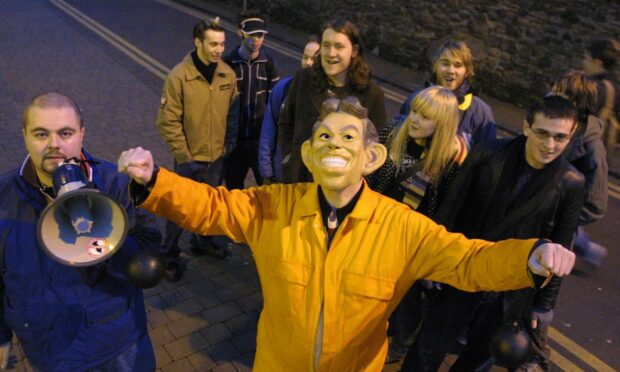
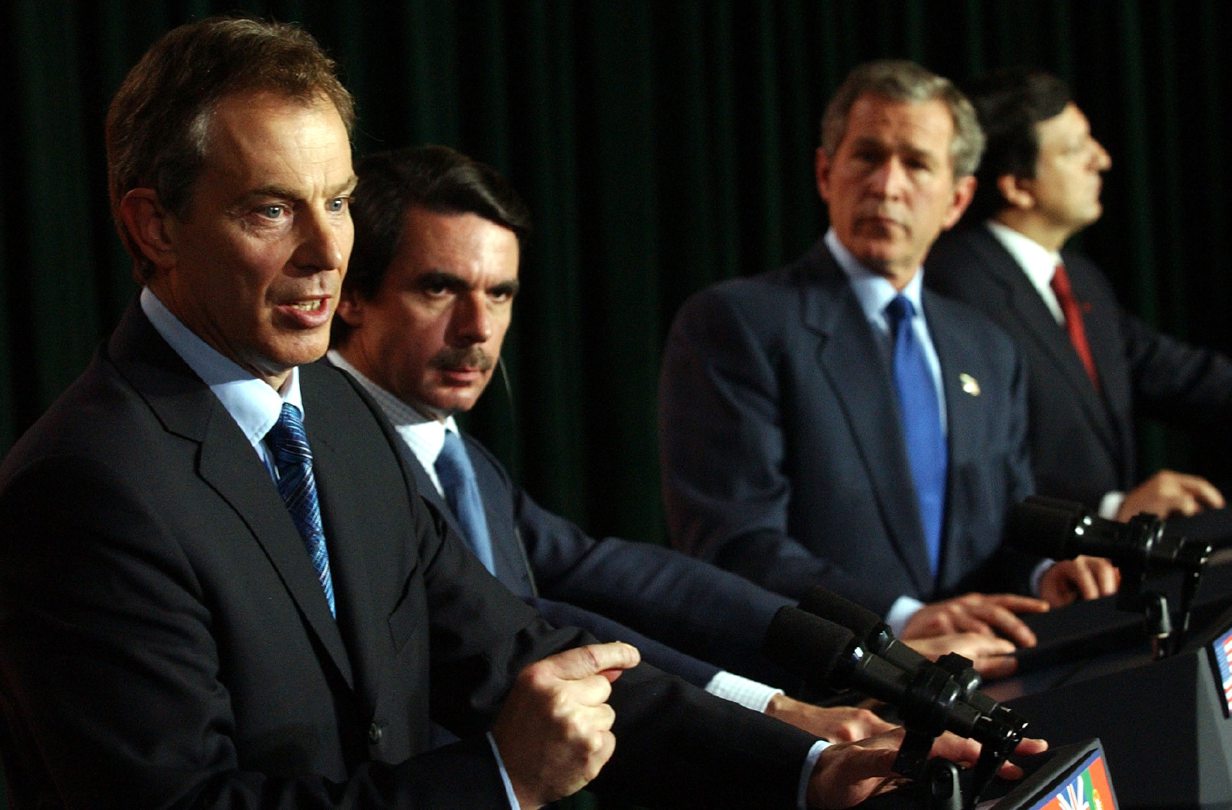
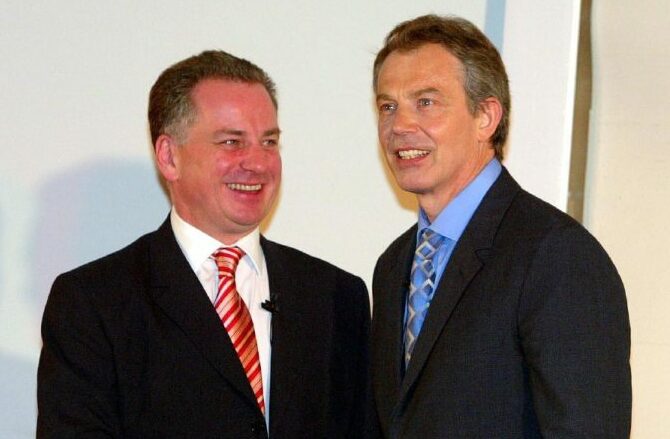
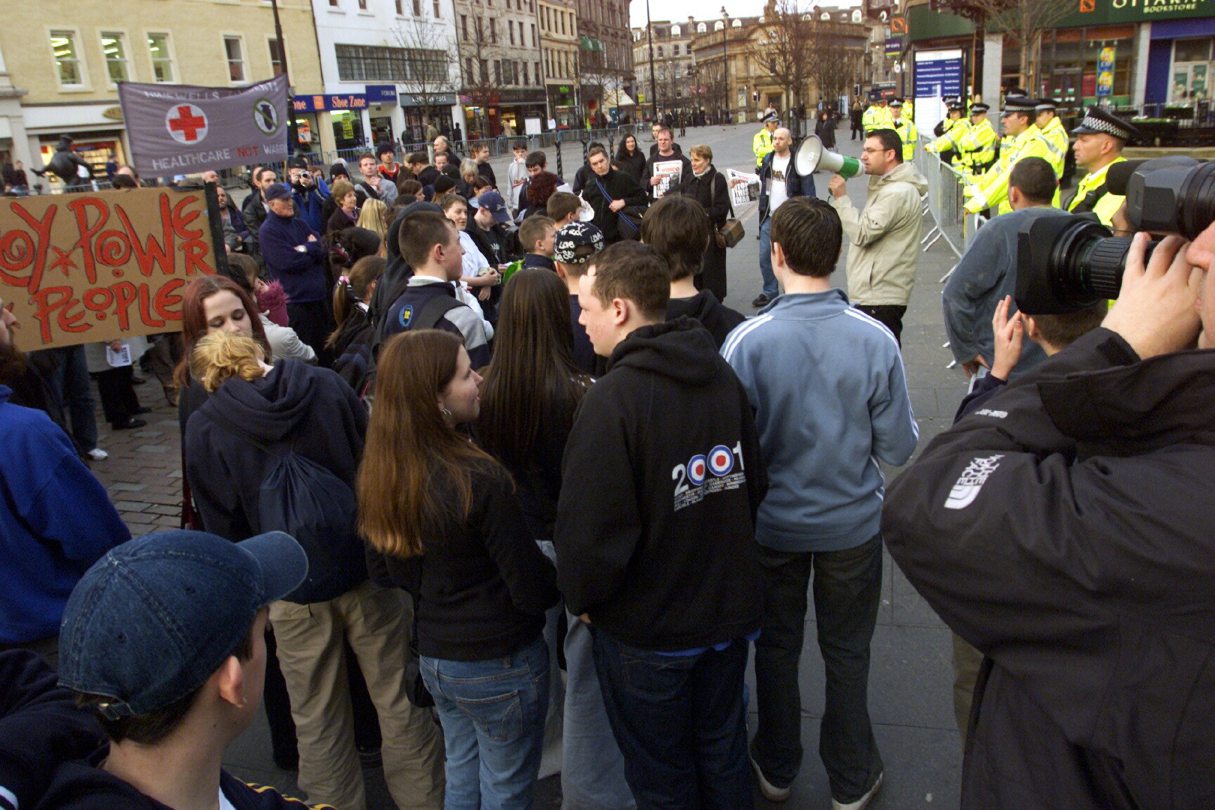
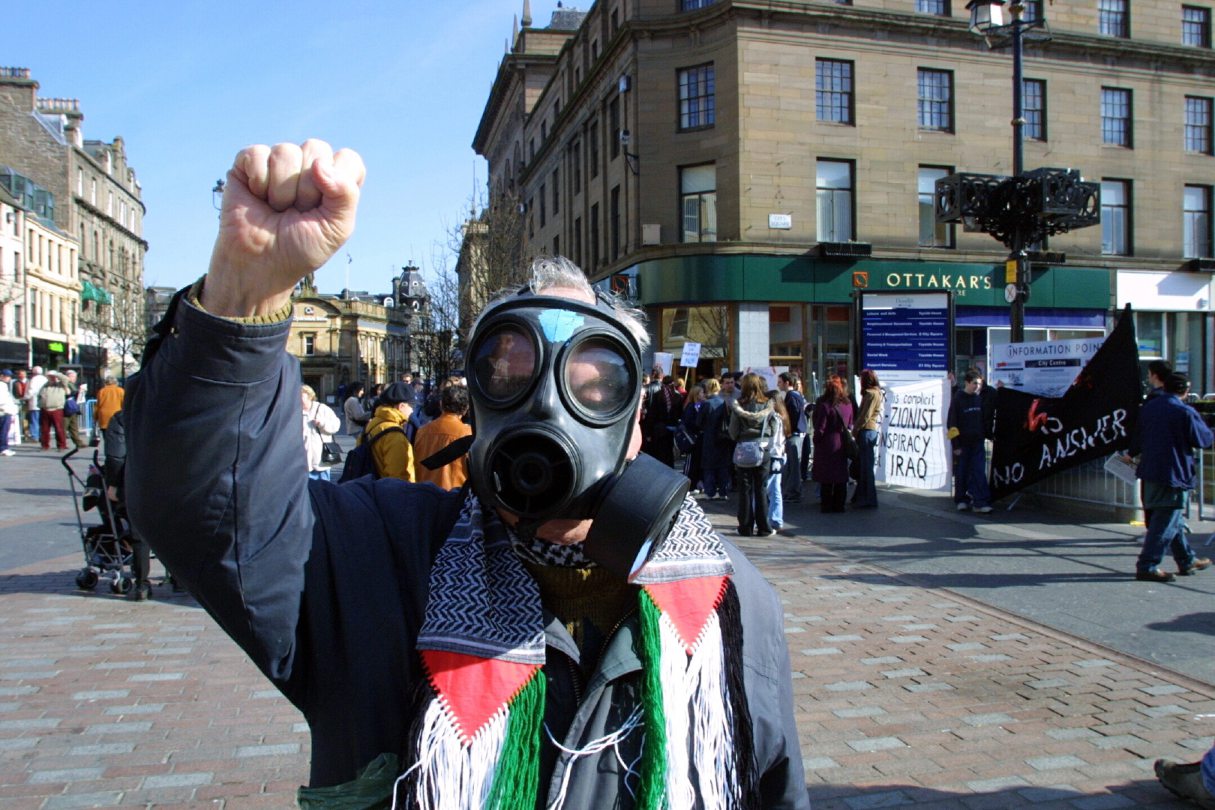
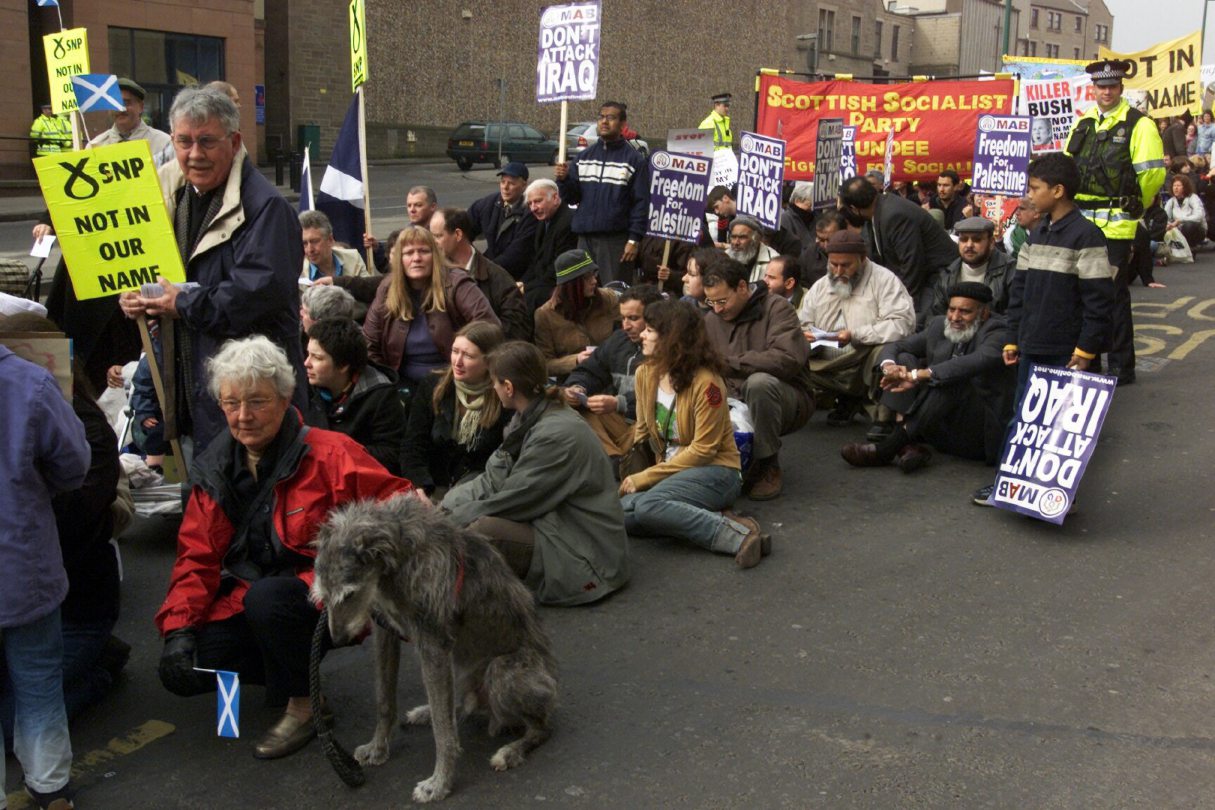
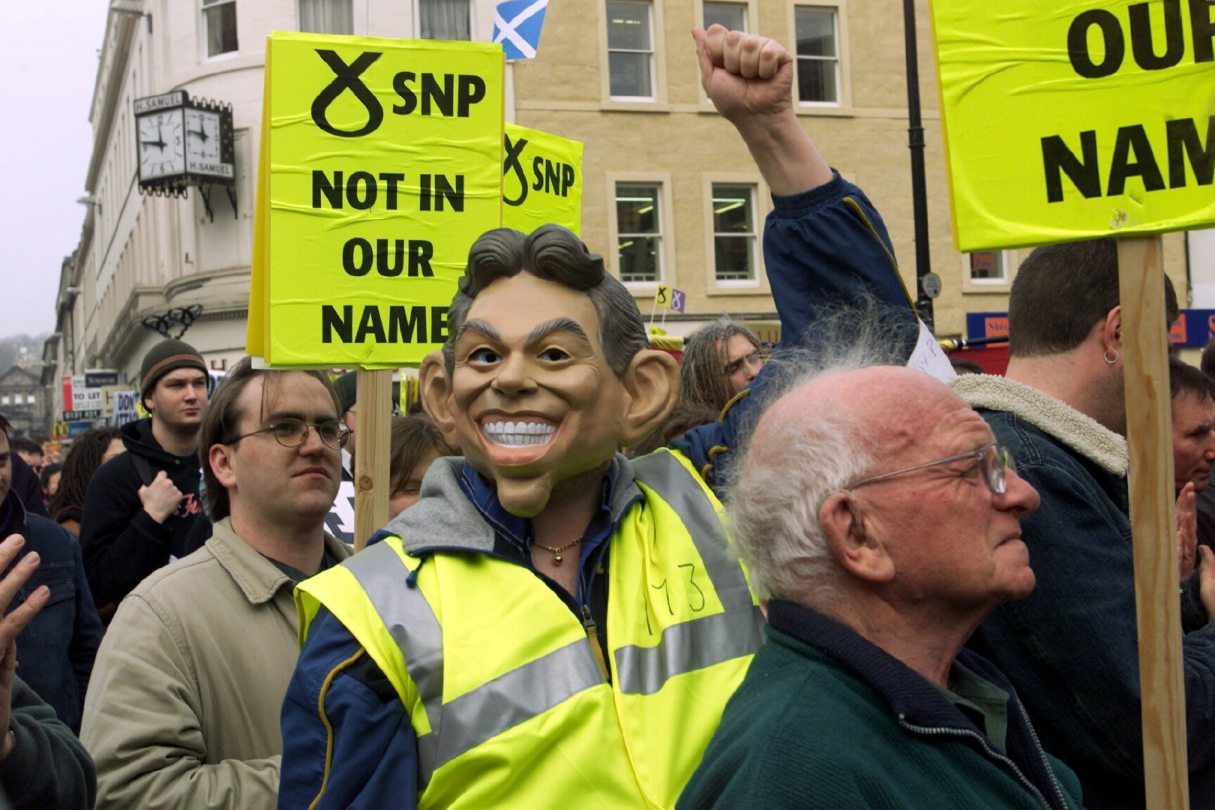
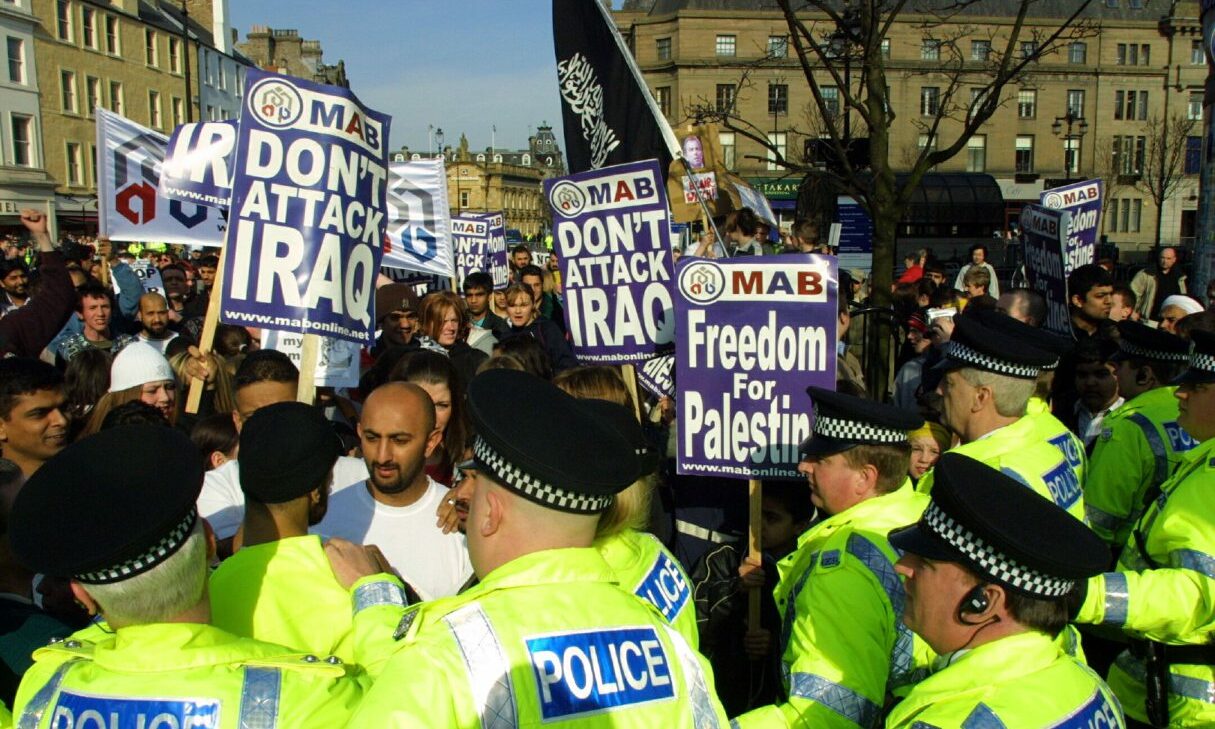
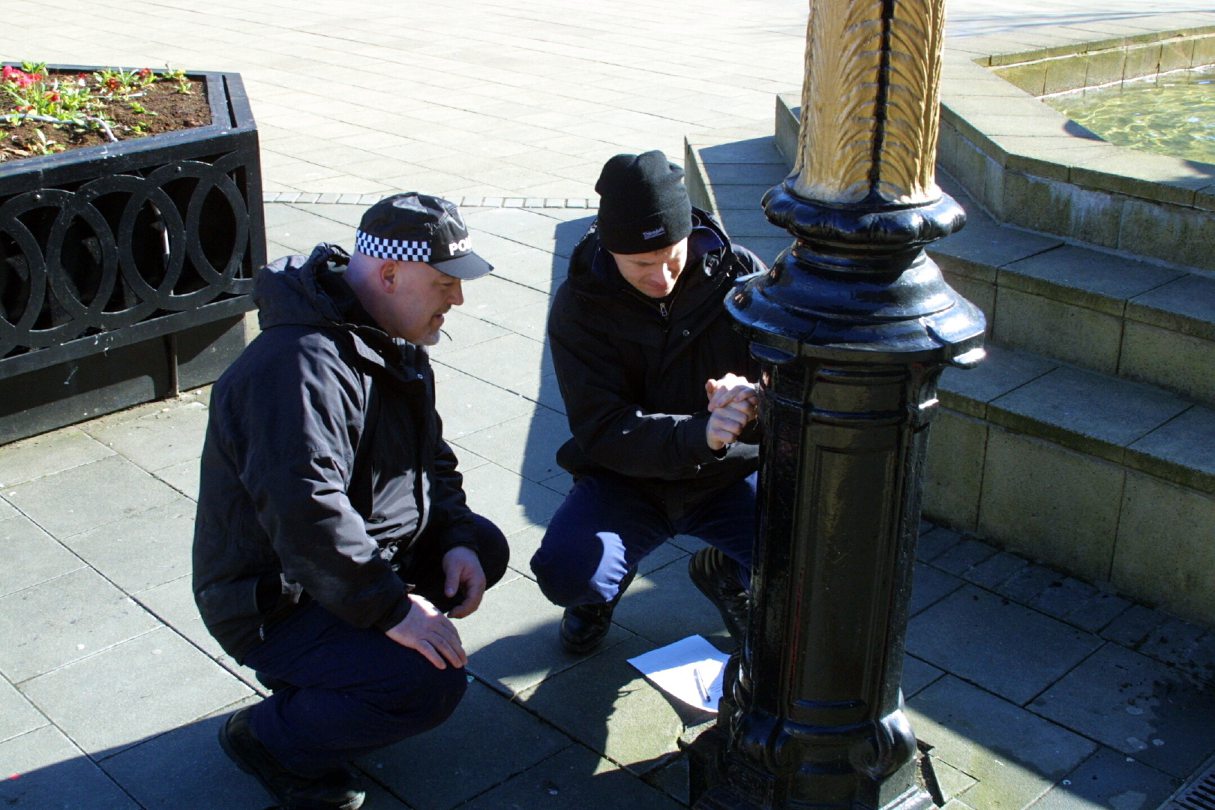
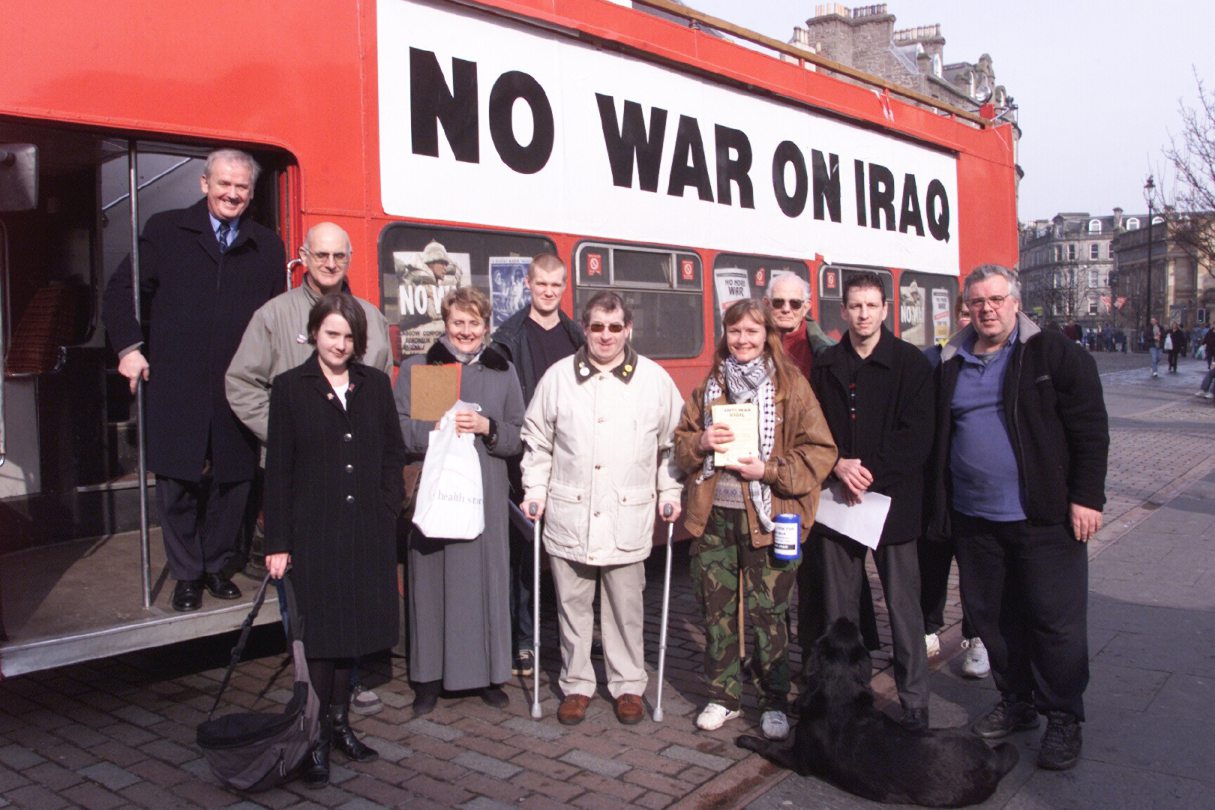
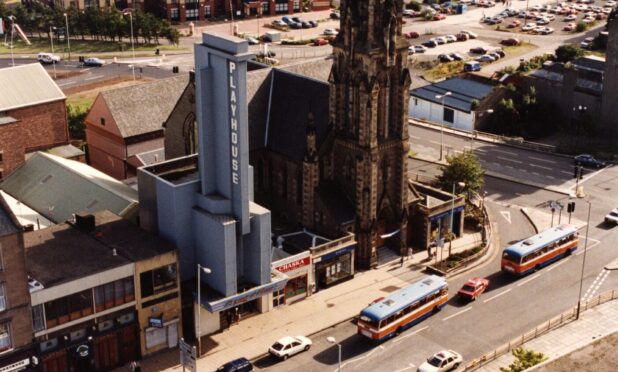
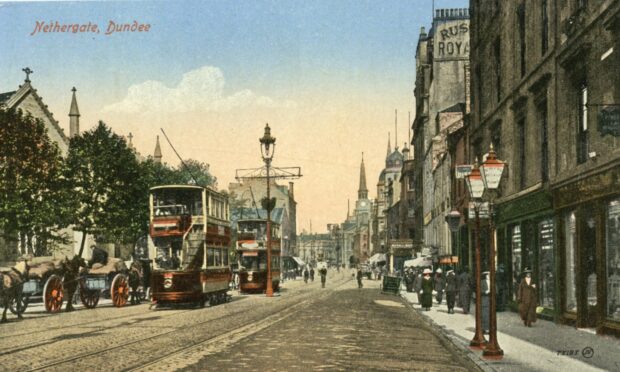




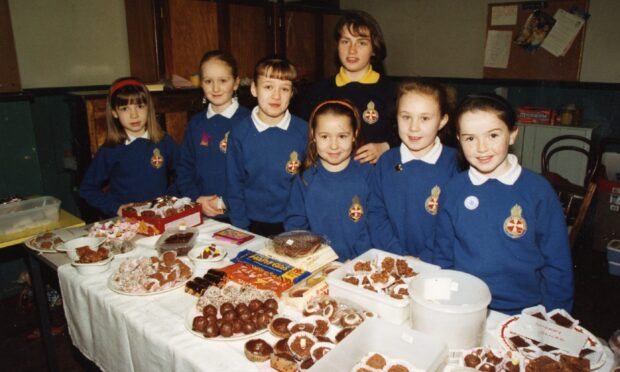



Conversation